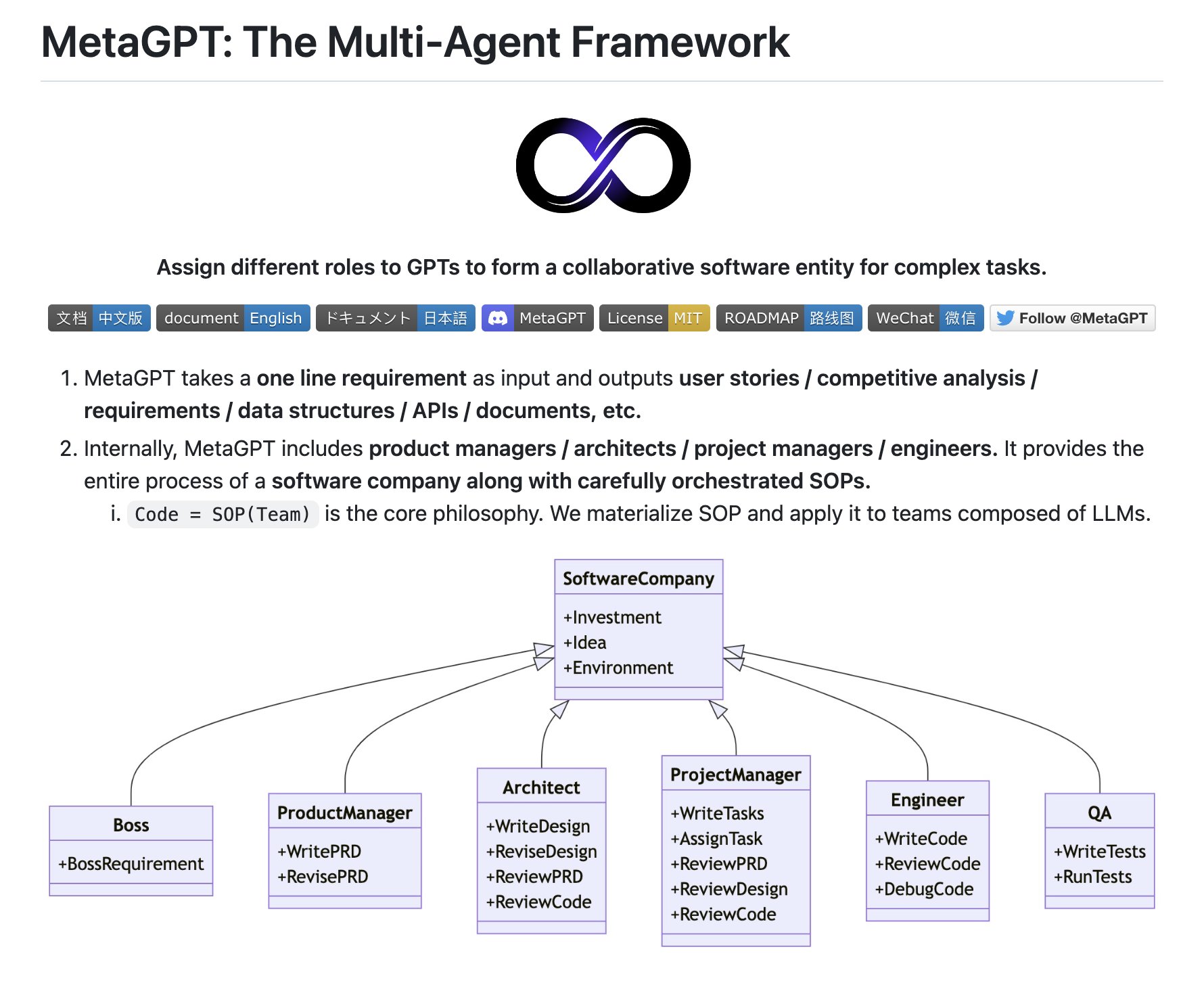MetaGPT is a revolutionary new tool that is changing the way software is developed. It is a meta-programming framework that uses GPT-3 to automate the entire software development process, from requirements gathering to deployment.
MetaGPT works by assigning different roles to GPT-3 models. For example, one model might be responsible for gathering requirements, while another model might be responsible for designing the architecture. MetaGPT then orchestrates these models to work together to create a complete software project.
This approach to software development has a number of advantages. First, it is much faster than traditional methods. MetaGPT can automate tasks that would typically take weeks or months to complete, such as writing user stories and creating wireframes. This frees up developers to focus on more creative and strategic work.
Second, MetaGPT is more accurate than traditional methods. GPT-3 models are trained on massive datasets of text and code, which means that they have a deep understanding of the software development process. This allows them to generate more accurate requirements, designs, and code.
Third, MetaGPT is more scalable than traditional methods. As the size and complexity of a software project increase, MetaGPT can simply be scaled up to add more GPT-3 models. This makes it ideal for large, enterprise-scale projects.
MetaGPT is still under development, but it has the potential to revolutionize the way software is developed. It is a powerful tool that can help teams build better software faster and more accurately.
Here are some of the potential benefits of using MetaGPT:
- Increased speed and efficiency: MetaGPT can automate many of the tasks involved in software development, such as requirements gathering, design, and coding. This can save teams a significant amount of time and effort.
- Improved accuracy: MetaGPT is trained on massive datasets of text and code, which gives it a deep understanding of the software development process. This can lead to more accurate requirements, designs, and code.
- Increased scalability: MetaGPT can be scaled up to handle large, complex projects. This makes it ideal for enterprise-scale development teams.
- Reduced risk: MetaGPT can help reduce the risk of errors and defects in software. This is because it can generate code that is more consistent and compliant with industry standards.
MetaGPT is still a new technology, but it has the potential to have a major impact on the software development industry. It is a powerful tool that can help teams build better software faster, more accurately, and with less risk.




